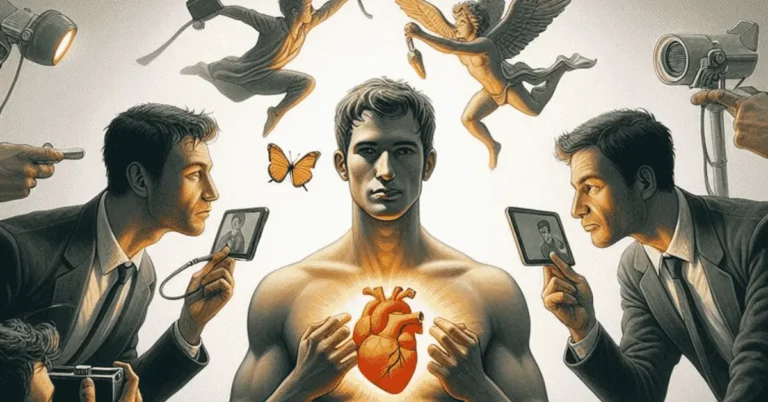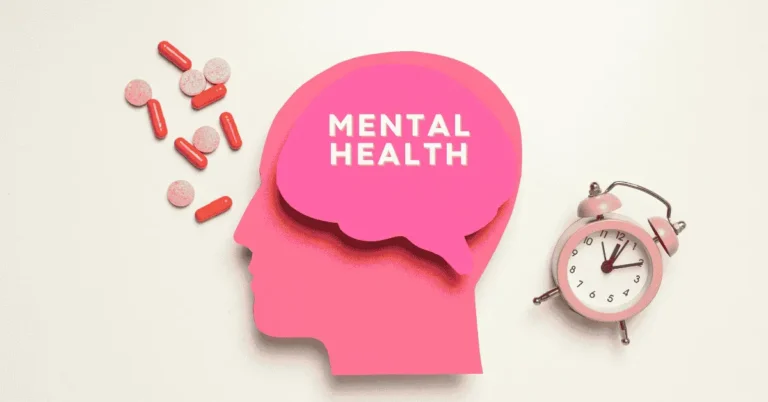Top Mental Health and Self-Care Trends in 2025: A New Era of Wellness
In 2025, mental health and self-care are no longer just trendy buzzwords — they are essential parts of a balanced, happy life. With the stressors of modern living, new mental health tools, and evolving self-care practices, people are more invested than ever in nurturing their minds. Let’s explore the top 10 mental health and self-care trends for 2025, from digital detoxes to innovative tech-based solutions.
Also Read: Mastering SFM Compile: A Complete Guide to Source Filmmaker
Table of Contents
1. Switching Off: Digital Detox Retreats Are In
With the rise of social media and constant connectivity, it’s no surprise that more people are experiencing burnout. Digital detox retreats are becoming increasingly popular as people seek relief from constant screen time. These retreats offer a chance to disconnect from technology and reconnect with themselves in serene natural environments.
These retreats are not just about turning off your phone — they’re about reconnecting with the present moment. Activities such as meditation, journaling, yoga, and hiking help participants reduce stress and anxiety, while nature therapy enhances the benefits of unplugging.
Many retreats are now offering virtual detox programs for those who can’t travel, allowing people to unplug from home with the help of professional guides. According to a study by the American Psychological Association, taking regular breaks from technology can significantly reduce stress levels and improve mental clarity.
Pro Tip: Look for weekend retreats in local parks or nature reserves if a full retreat isn’t in your budget.
2. AI Helpers for Mental Health: The Future is Here
Artificial Intelligence (AI) isn’t just for tech geeks anymore. It has found its way into the world of mental health, providing affordable, easily accessible support for those struggling with their mental well-being. AI-based mental health apps such as Woebot, Wysa, and Youper are becoming household names, offering users personalized advice, daily check-ins, and even emotional support during tough moments.
In 2025, we’re seeing AI tools that are increasingly sophisticated, offering customized meditation practices, mood tracking, and cognitive behavioral therapy (CBT) methods. While AI isn’t a replacement for traditional therapy, these apps are providing immediate, on-demand help for individuals who may not have access to in-person therapists or need quick relief during busy schedules.
For example, Woebot uses Cognitive Behavioral Therapy (CBT) techniques to help users manage their emotions, while Wysa provides an empathetic, text-based AI that helps you work through anxiety, depression, and stress in real time.
3. Meditation Meets Technology: Mindfulness Devices & Apps
Meditation and mindfulness are two of the most powerful tools in promoting mental wellness, and in 2025, they’re getting even smarter. Meditation apps like Headspace, Calm, and Insight Timer are expanding their offerings to include advanced features like biofeedback through wearable devices. These gadgets can now measure your stress levels, heart rate, and even brain activity to tailor meditation exercises that work best for your unique needs.
Wearables such as the Muse Headband help you track your brain waves while meditating, allowing you to adjust your practice in real time for maximum focus and relaxation. This combination of technology and mindfulness is revolutionizing the meditation world and offering a personalized path to calm.
If you want to start incorporating mindfulness into your life, even small steps such as using an app to meditate for 5 minutes a day can make a huge difference. With the rise of technology-driven meditation tools, finding inner peace has never been easier.
4. Mental Health at Work: A New Priority
The workplace is undergoing a major transformation in how it handles mental health. More companies are recognizing that supporting their employees’ well-being leads to a more productive, engaged workforce. In 2025, mental health programs are becoming the norm in organizations across the globe. Employers are offering mental health days, on-site therapy sessions, and workshops on stress management.
For example, large companies like Google and Salesforce have implemented mental health benefits such as access to therapists, meditation spaces, and mental wellness apps for their employees. These companies are setting an example that prioritizing mental health in the workplace is not only the right thing to do — it’s also good for business.
Furthermore, companies are offering flexible working hours and remote work options to reduce stress from long commutes and work-life imbalance. With mental health days now integrated into paid time off (PTO) in many workplaces, employees are empowered to take care of their well-being without guilt.
5. Nature Therapy: Healing with Green Spaces
Spending time in nature has always been shown to improve mental clarity, reduce stress, and enhance mood. In 2025, the trend of nature therapy continues to gain traction as more people are taking part in forest bathing, outdoor yoga, and even plant therapy at home.
A study by the University of Queensland found that just 20 minutes of outdoor activity can boost serotonin levels and improve mood. Whether it’s taking a walk through a local park, hiking in the mountains, or tending to a garden, nature is a natural remedy for stress.
Even if you live in an urban environment, bringing nature indoors with house plants has been shown to have similar benefits. Indoor gardens and plant-filled spaces are becoming increasingly popular as people look for ways to combat mental fatigue and connect with nature.
6. Virtual Reality for Relaxation: A New Mental Health Tool
Virtual reality (VR) is no longer just for gaming. In 2025, VR is being used as a tool to relieve stress, reduce anxiety, and improve mental wellness. VR programs like TRIPP and Relax VR allow users to immerse themselves in calming, nature-inspired worlds that promote relaxation and mindfulness.
Studies show that VR can be incredibly effective in helping individuals manage stress by providing a quick escape from daily pressures. TRIPP, for example, offers users guided meditations in virtual environments that can reduce anxiety and boost emotional well-being.
If you’re struggling with stress or mental fatigue, VR might offer the mental vacation you need — even if it’s only for 10 minutes a day.
7. Writing It Down: The Rise of Journaling for Mental Health
Journaling is an age-old practice, but in 2025, it’s becoming more popular than ever as a tool for mental wellness. Whether it’s jotting down your thoughts, expressing gratitude, or tracking your moods, writing has been shown to help process emotions, clear mental clutter, and even boost creativity.
Today, digital journals like Day One and Journey are making it easier than ever to record your thoughts. With features like mood tracking, photo integration, and password protection, these apps allow for secure, private journaling on the go. But don’t worry — traditional paper journals are still incredibly popular for those who enjoy the physical act of writing.
Pro Tip: Try starting with morning pages — writing three pages every morning, no matter what comes to mind, to clear your mind and boost focus for the day.
8. Stronger Social Connections: Wellness through Relationships
While self-care is often seen as an individual pursuit, mental health is deeply tied to social connections. In 2025, there is a stronger emphasis on community-based wellness and social self-care. People are realizing that having close relationships with others is key to emotional health.
Activities like group yoga classes, community gardens, and book clubs are providing people with a chance to build deeper connections. Local meetups and online communities are helping people share their wellness journeys and support each other in their mental health practices.
Whether you’re connecting with old friends or meeting new people, building a supportive social circle is becoming an integral part of modern self-care.
9. Biohacking: Optimizing Your Body and Mind
Biohacking — the practice of using science and technology to improve your body and mind — is gaining popularity. In 2025, people are using simple hacks like cold showers, better sleep routines, and superfoods to boost both their physical and mental health.
For example, many biohackers are focusing on sleep optimization — improving the quality of their sleep to boost cognitive function, reduce stress, and improve overall mental health. Devices like Oura Rings and Whoop Straps are helping people track their sleep patterns and adjust their habits accordingly.
10. Mental Health That Respects Your Culture: Inclusivity in Wellness
As mental health care becomes more accessible, there’s a growing focus on providing culturally competent care. In 2025, therapists and wellness programs are incorporating culturally relevant practices and tools into their offerings. Whether it’s therapy rooted in Indigenous healing or mindfulness practices from Eastern traditions, mental health care is becoming more inclusive.
Programs and apps now cater to specific cultural groups, ensuring that the strategies and techniques used are meaningful and effective for a wider audience.
Final Thoughts: A New Era of Wellness
The way we approach mental health and self-care in 2025 is more innovative and inclusive than ever before. Whether it’s through cutting-edge technologies, nature therapy, or stronger social connections, people are taking charge of their well-being in new, creative ways. As we move into a new era, prioritizing our mental health is more important than ever.
What trends are you most excited about in 2025? Drop a comment below and let’s start a conversation about the future of wellness!







